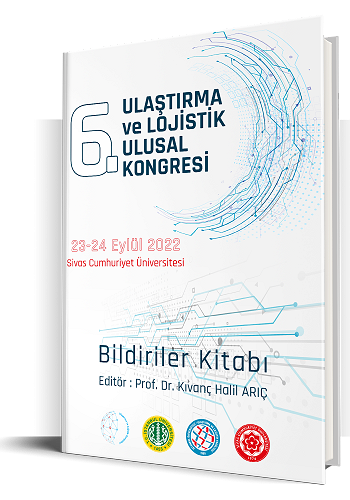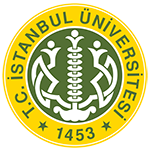
Ulaştırma ve Lojistik Kongreleri
- Türkçe
- Özet
- 2022
E-Lojistik Sonrası Ticari Dönüşüm
Müşerref Önal
Yüksek Lisans Öğrencisi, KTO Karatay Üniversitesi, Konya, Türkiye
Küreselleşmenin hız kazanması ile birlikte literatürde sıklıkla konuşula gelen dönüşüm terimi tüm dijital temelde konuşlandırılmış alanlarda kullanılır kılınmış, dünya hızının yakalanması bu doğrultuda hedeflenmiştir. Ekonomik bazda büyüme arzusunda olan ülkelerin ticari hareketliliği artırma arzusu, dijitalleşmedeki gelişimi yakalayarak ticari entegrasyonun hız kazanmasını beraberinde getirmiştir. Dijital bazda gerçekleşen gelişimlerin, sistemi temelden etkilemesi akabinde ticari faaliyetler ve inovatif yönelimlerle güncellenmesi gerekliliği doğmuştur. İlgili gereklilik teknolojik tabanlı uygulamaların gerek bireysel gerek kurumsal gerekse kamu bazında değişimine neden olmuştur. E-ticaret faaliyetlerinin hız kazanması ticarete konu mal ve hizmet hareketliliğinin artırılmasını desteklemekle birlikte lojistik faaliyetlerinin geliştirilmesini de olumlu yönde etkilemiştir. Ticarete konu ürünlere dijital mecralar ile her nerede ve ne zaman olursa olsun ulaşım sağlanması ürün temininde kolaylık sağlamakta ve ilgili kolaylık ticaret hacmini geliştirici özellik göstermektedir. Buna ek olarak ürünlerin elektronik mecralarda arz edilmesi ürün özelliklerine, ürün fiyatlarına, ürünün piyasada konuşlandırıldığı yelpazeye, ürünlerin teslim sürecine kolaylıkla ulaşılmasını sağlayarak ticari şeffaflığı geliştirici buna ek olarak tüm bilgilerin erişilebilir kılınması ile rekabet edilebilirliği artırıcı özellik gösterecektir. İşbu ifade edilen noktalarla, elektronikleşme ile ticaretin gelişiminin destekleneceği ve uzun vadede ekonomik gelişimin sağlanacağını düşünülmektedir. Buradan hareketle çalışma dahilinde siyasi, sosyal ve ekonomik gereklilikler dikkate alınmak suretiyle e-lojistik kavramının uygulanır kılınması ile ticaretin hangi yönde dönüşüm gösterdiğinin araştırılması amaçlanmaktadır. Bu çalışma ile e-ticaret ve e-lojistik kavramlarının geldiği noktanın değerlendirilmesi ile konunun somut veriler ile istatistiki değerlendirmeler ile lojistikteki dönüşümün ticari hareketlilik ve ekonomik büyüme üzerindeki etkisinin değerlendirilmesi amaçlanmıştır. Lojistik süreci incelendiğinde görülmektedir ki süreç içerisinde; ticarete konu olan malın tedarik sürecinde gerekli olan adımlar yer almaktadır. İşbu süreç gerçekleştirilirken işlem maliyetlerinin minimize edilmesi ve işlem hızının artırılması lojistik şirketlerin tercih edilebilirliğini artırıcı özellik gösterecektir. Bu noktada lojistik dijitalleşme ile teknolojik hız kazanılması sağlanmıştır. Bilgi sistemlerinin lojistikte kullanımı; standart lojistik faaliyetlerinin kapsamını genişletici özellik göstermiştir. Daha somut bir ifade ile lojistik kavramı yaygın olarak dış ticarette büyük paketli ürünlerin ithalat ya da ihracatında sıklıkla kullanılır iken e-lojistik ile müşteri ve lojistikçi firma arasında entegrasyon artırılmış ve faaliyette küçük paket ticareti de önemli bir yer kazanmıştır. Bu noktada elektronikleşmenin ticarette ürün kapsamını ebat bazında genişlettiği de söylenebilecektir. -lojistik kavramının geleneksel lojistik anlayışı aksine dijital temelli bir kontrol ve yönlendirme faaliyeti olması ilgili kavramın işlemin gerçekleştirilmesinden ziyade sürecin yönetilmesini kapsamına aldığı ve bu noktada dijital lojistik yönetimi olarak yorumlanması gerektiğini ifade etmek gerekmektedir. Bu noktada lojistiğin ürün temini, depolama hizmetleri, sipariş alınması ve ürünün ulaştırılmasını tek bir merkezden ve manuel yöntemler ile yapması aksine e-lojistik ilgili işlemleri elektronik olarak gerçekleştirerek tüm bu süreci farklı ürünler, depolar ve birden fazla merkez ile organize etmesi işlem farkını açıkça ifade edecektir. İşbu elektronik altyapının yapay zekâ ile geliştirilmesi beraberinde sipariş tahmininin öngörülmesini sağlayarak üretimin yer, zaman ve mekân noktasında erken planlanmasını sağlayacak ve iktisadi dönüşümde ivme kazandırıcı düzeni destekleyecektir.
Anahtar Kelimeler: E-Lojistik, Dönüşüm, E-Ticaret
Commercial Transformation After E-Logistics
With the acceleration of globalization, the term transformation, which is frequently spoken in the literature, has been made available in all digital-based areas, and it is aimed to catch the world speed in this direction. The desire of the countries that want to grow on an economic basis to increase the commercial mobility, has caught the development in digitalization and brought along the acceleration of commercial integration. After the developments on a digital basis affected the system fundamentally, it became necessary to update it with commercial activities and innovative orientations. The relevant requirement has led to the change of technology-based applications on an in dividual, institutional and public basis. The acceleration of e-commerce activities not only supported the increase in the mobility of goods and services subject to trade, but also positively affected the development of logistics activities. Providing access to the products subject to trade through digital channels wherever and whenever it is, provides convenience in product supply and the related convenience shows the feature of improving the trade volume. In addition, the supply of products in electronic channels will provide easy access to product features, product prices, the range in which the product is deployed in the market, and the delivery process of the products, improving commercial transparency and in creasing competitiveness by making all information accessible. With the points mentioned herein, it is thought that the development of commerce will be supported and economic development will be provided in the long term with electronicization. From this point of view, within the scope of the study, it is aimed to make the concept of e-logistics applicable by taking in to account the political, social and economic requirements and to in vestigate in which direction the trade has transformed. With this study, it is aimed to evaluate the point of e-commerce and e-logistics concepts and to evaluate the effect of the transformation in logistics on commercial mobility and economic growth with concrete data and statistical evaluations of the subject. When the logistics process is examined, it is seen that in the process; The steps required in the procurement process of the traded goods are included. While this process is being carried out, minimizing the transaction costs and in creasing the transaction speed will increase the preferability of logistics companies. At this point, technological acceleration has been achieved with logistics digitalization. Use of information systems in logistics; has expanded the scope of standard logistics activities. In a more concrete expression, the concept of logistics is widely used in foreign trade, in the import or export of large packaged products, while the in tegration between e-logistics and the customer and the logistics company has been increased and small package trade has gained an important place in the activity. At this point, it can be said that electronicization has expanded the scope of products in commerce on the basis of size. It should be stated that the concept of logistics is a digital-based control and guidance activity, in contrast to the traditional logistics understanding, and that the related concept includes the management of the process rather than the realization of the transaction, and at this point it should be in terpreted as digital logistics management. At this point, unlike the fact that logistics carries out product supply, storage services, order taking and delivery of the product from a single center and with manual methods, e-logistics performs the related transactions electronically and organizes this whole process with different products, warehouses and more than one center will clearly express the difference in operation. The development of this electronic infrastructure with artificial in telligence will enable the prediction of order forecasting, ensure early planning of production at the point of place, time and space, and support the order that will accelerate the economic transformation.
Keywords: E-Commerce, Transformation, E-Logistics


Bu çalışma, kullanan kişilere orjinal çalışmadan alıntı yaptıkları sürece, çalışmayı dağıtma, değiştirme ve üzerine çalışma hakkı tanıyan Attribution 4.0 International (CC BY 4.0) lisansı ile lisanslanmıştır.
İletişim
İstanbul Üniversitesi Ulaştırma ve Lojistik Fakültesi
İ.Ü. Avcılar Kampüsü 34320 Avcılar/İstanbul
ulk@istanbul.edu.tr
+ 90 (212) 440 00 00 - 19200


